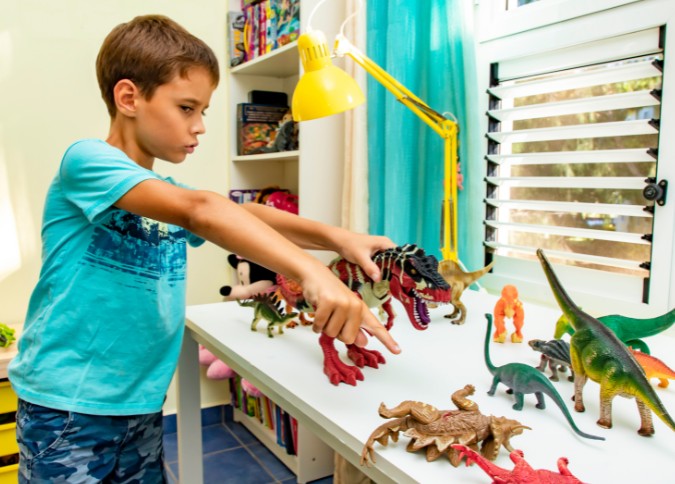A trained play therapist uses a unique skill set to connect with children through a child’s language of self-expression: play.

For young children, play is developmentally and fundamentally the language they use to articulate and process feelings and difficulties. Indeed, children use play to communicate more so than speech.
The American Academy of Pediatrics reveals that play is essential to promoting social-emotional, cognitive, language, and self-regulation skills. Further, play supports the formation of the safe, stable, and nurturing relationships with all caregivers that children need to thrive.
How does play therapy promote healing?
When a child embarks on a play therapy journey, they often achieve growth in a profound way that classic talk therapy cannot to provide. Children communicate through play; therefore the process allows and welcomes self-healing in a way that feels natural to them.
A play therapist provides the space where an important therapeutic relationship can be established by communicating with them through the medium with which they are most comfortable. Sometimes feelings and experiences may be too overwhelming or difficult to articulate with words for a child, but they can safely communicate them through self-chosen toys.
The following in an example of the power of play and how differently children and adults process through experiences.
A family that I worked with was in a significant car accident. The parents shared and processed the event by verbalizing details, rehashing emotions, and revisiting their experiences of shock and fear.
The child, on the other hand, did not talk about it. Rather, through his play, he crashed cars into each other and into walls, and he had ambulances come to the aid of the people saying, “Everything is going to be okay! We’ve got you now.”
Reenacting the accident in this way was a part of his healing process; it was how he needed to process and communicate what he had experienced.
Providing a supportive and natural space to process emotions
It is not uncommon for young children to stay silent about what might be troubling them at home, at school, or in other areas of their life. Instead, they may express themselves through acting out in ways that are not ideal, such as behavioral issues at home or school.

Through play therapy, we can provide a space to support them as they sort through their emotions. Research shows that play therapy is highly effective for children that have had problems with disruptive behaviors at home or school, relationship conflict, mood disorders, anxiety, attention concerns, anger, grief/loss, social skills, and self-esteem.
Most often play therapy is a modality that is practiced with children between the ages of three and twelve years old, however it can be beneficial at any age.
While play therapy involves only the child and the therapist, parents are a fundamental part of the process. Play therapists regularly connect with parents to establish a support team to assist with the work that the child is doing in their therapeutic space.
The power of play is undeniable and continues to grow in empirical evidence. Gary Landreth said it best: “Birds fly, fish swim, and children play.”
Connect with a Sunstone play therapist
Our trained therapists can assist children in developing skills to regulate emotions, build confidence, and tackle everyday issues – all using the power of play.
If you have a child you think may benefit from play therapy, please reach out to us. We’ll connect you with a counselor best suited for your little one.
Written by Katie Clark, LPC, RPT, NCC, Sunstone co-founder
